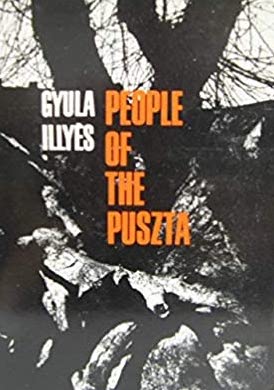Leírás
People of the puszta is a part an auto-biography, part sociography (of a society that has now mostly disappeared), part a description a landscape, meshed with bits of the cultural heritage of the people who inhabit that landscape.
$ 25.00
People of the puszta is a part an auto-biography, part sociography (of a society that has now mostly disappeared), part a description a landscape, meshed with bits of the cultural heritage of the people who inhabit that landscape.
1 készleten
People of the puszta is a part an auto-biography, part sociography (of a society that has now mostly disappeared), part a description a landscape, meshed with bits of the cultural heritage of the people who inhabit that landscape.
A gripping and moving novel. It is based on a true story about two women faced with trials and tribulations during war torn Europe. Politics (perscution of Hungarian Jews during World War II), poverty, and love separated them and forced them to move from one country to another until they eventually reunited again in Canada.
This steely account of a childhood on the run, first from the Nazis and then as a refugee in postwar Europe, serves as a fitting memorial to the author, who died in December 1996, shortly before the book was published. Magda Denes settled in America and became a psychoanalyst, which may explain her total lack of sentimentality about her youthful self. The fierce emotions of childhood–exacerbated in this case by the danger she faced as a Jew in fascist Hungary–have seldom been better portrayed.
Albert Morris Bagby spent the summer of 1885 in Weimar, where he attended Liszt’s classes. In the guise of a light-hearted autobiographical novel, this romantic tale reveals the characters of several real-life individuals who were part of Liszt’s circle
Each day is a struggle to survive…
About the Author: I grew up in a small, peaceful Canadian town, listening to the stories of my immigrant parents’ childhood experiences. Their courage and determination provided me with opportunities that many of their generation were denied. In discussing the large events that shaped the great wars, the impact on the little people is often overlooked. The course of millions of lives was changed, and millions of people suffered hunger, poverty, and torture. I feel that it was important to tell a few of their stories before they are forgotten.

